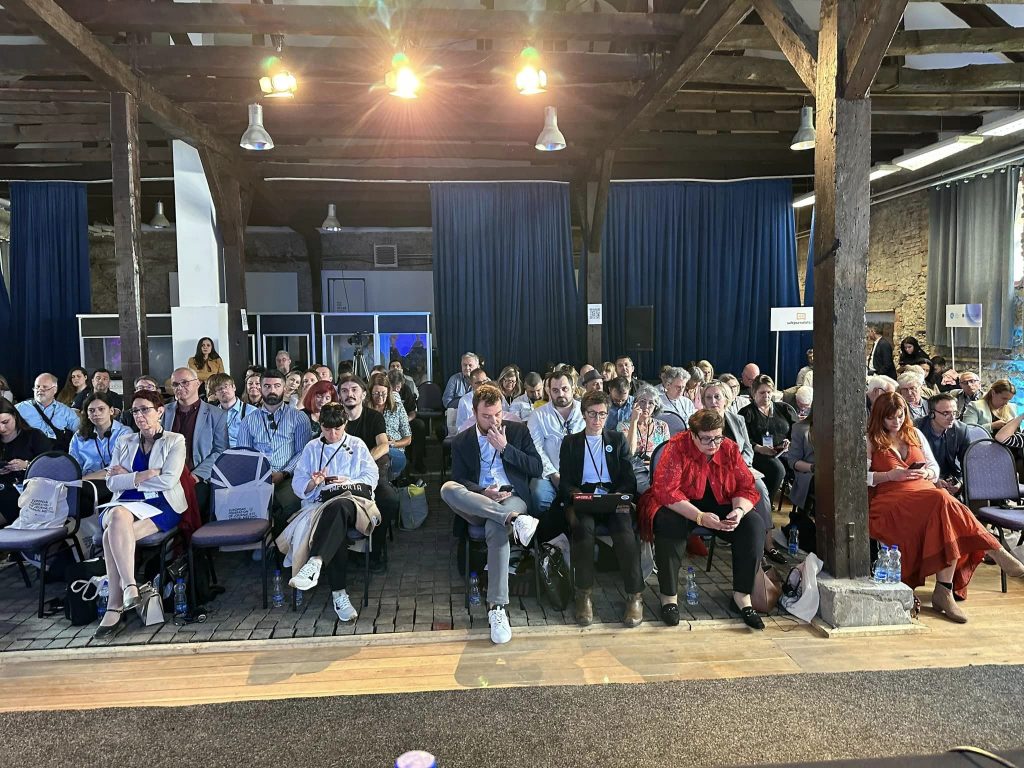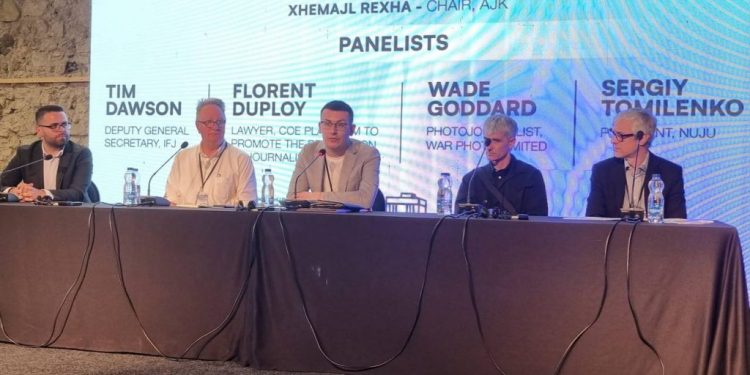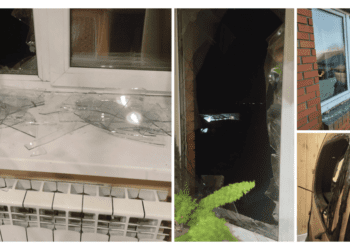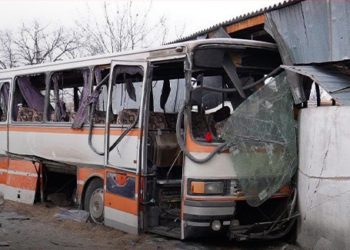The need for long-term assistance to the Ukrainian media was emphasized in the address proposed by the National Union of Journalists of Ukraine (NUJU) and recently approved by the European Federation of Journalists (EFJ), which represents almost 300,000 journalists in Europe.
“Journalists in Ukraine lose not only their freedom and life but also their health, property, newsrooms, and the opportunity to remain in their profession. They are forced to move away from the front, but even there, they are in danger,” Sergiy Tomilenko, the President of the NUJU and member of the EFJ Executive Committee, emphasized while speaking at the EFJ Annual Meeting.
The address states that emergency assistance from international organizations, national unions, and associations of journalists in European and other countries allowed the NUJU to help more than 4,500 journalists and more than 200 newsrooms, in particular, to resume publication of 30 newspapers in the front-line territories.
However, a short planning horizon leads to the reduction of jobs for journalists and the formation of “news deserts.” Therefore, the Ukrainian media urgently need the early help of donors.
Here, we offer you the full text of the address.
On the importance of recovering media as an integral part of Ukraine’s recovery
Ukrainian independent media play a critical role as reliable sources of information in conditions of full-scale war. For more than two years, Ukrainian journalists have been performing their work in extreme conditions of physical danger and economic crisis.
The Ukrainian media industry lacks a financial basis for recovery due to several factors:
- lack of traditional sources of income: the decline of the advertising market in the regions, a narrowed market in the capital
- migration of the population and a decrease in income from subscriptions;
- loss of interest of big business in media preservation;
- lack of institutional media support programs.
Because of this, most Ukrainian media suffer from the uncertainty of the future, financial problems and lack of personnel.
Aid from international organizations, including the Emergency Fund, created by the European and International Federations of Journalists, and thanks to the contributions of unions and associations of journalists of European countries, supported Ukrainian journalists in the most critical period. With the support of international partners, the NUJU helped more than 4,500 journalists and more than 200 newsrooms, in particular, in restoring the publishing of 30 newspapers in the front-line territories.
However, a short planning horizon leads to the reduction of jobs for journalists and the formation of “news deserts.” These gaps are filled by destructive russian propaganda and unverified and anonymous sources of information, which increases the audience’s sensitivity to misinformation.
These problems are raised by the White paper developed by the Global Forum for Media Development (GFMD) coalition in 2023 where a significant part of the proposals of the NUJU was taken into consideration.
Professional journalism has a great influence on expanding the transparency and accountability of the authorities, which is especially important in the conditions when international donors send significant amounts of funds to Ukraine for reconstruction.
However, the recovery programs presented by the Ukrainian government and the governments of European countries do not provide for the recovery of the media. This creates a situation where the public in the affected regions does not have the opportunity to control the spending of funds on infrastructure renewal – due to the closure of the media in these regions.
The Congress of the EFJ calls on donors to develop long-term support programs for Ukrainian media and to make such programs part of Ukraine’s recovery plans.
The Congress instructs the Executive Committee of the EFJ to:
- turn to the European Commission with a proposal to consider the issue of long-term support for Ukrainian media as part of the recovery plan for Ukraine;
- address to the governments of the countries of the European Union to include media restoration as a separate direction in the assistance programs for the restoration of Ukraine;
- consider the possibility of transferring part of the confiscated assets of the russian federation for long-term support of Ukrainian media and journalists who suffered as a result of armed aggression;
- sign on behalf of the EFJ the White paper ‘Long-term financial support for Ukrainian media and journalists,’ elaborated by the GFMD with the participation of the NUJU.
- turn to the government and parliament of Ukraine with a call to:
- create an independent support fund for Ukrainian media as a transparent and fair mechanism for distributing financial support to newsrooms; to involve Ukrainian media organizations in the management of the Fund;
- provide tax and other forms of assistance to Ukrainian media to ease financial pressure in the conditions of war and the lack of traditional sources of funding.


 THE NATIONAL UNION OF
JOURNALISTS OF UKRAINE
THE NATIONAL UNION OF
JOURNALISTS OF UKRAINE
















Discussion about this post